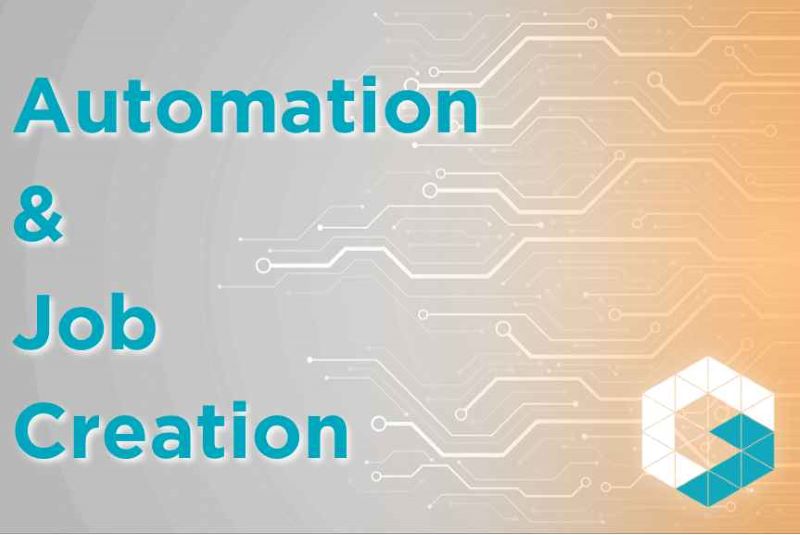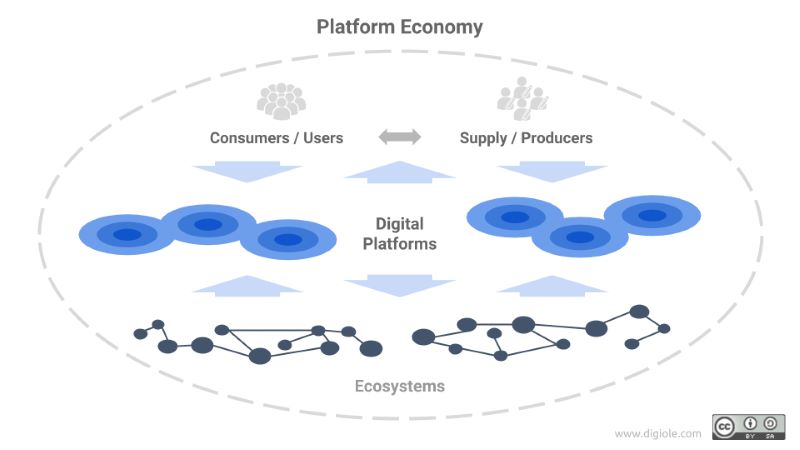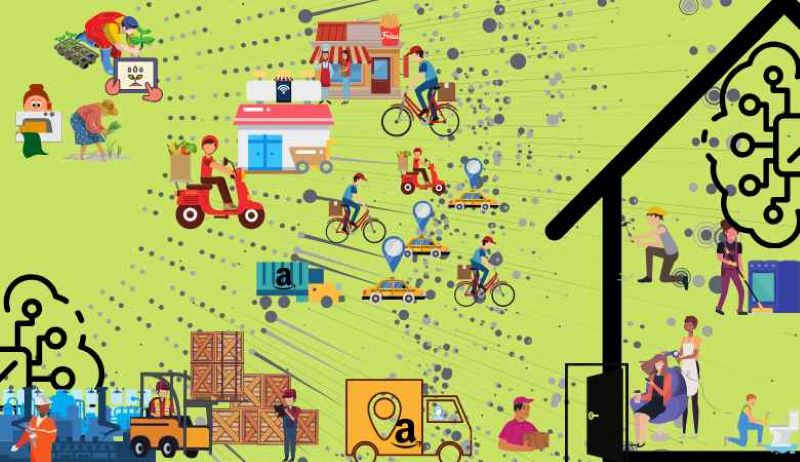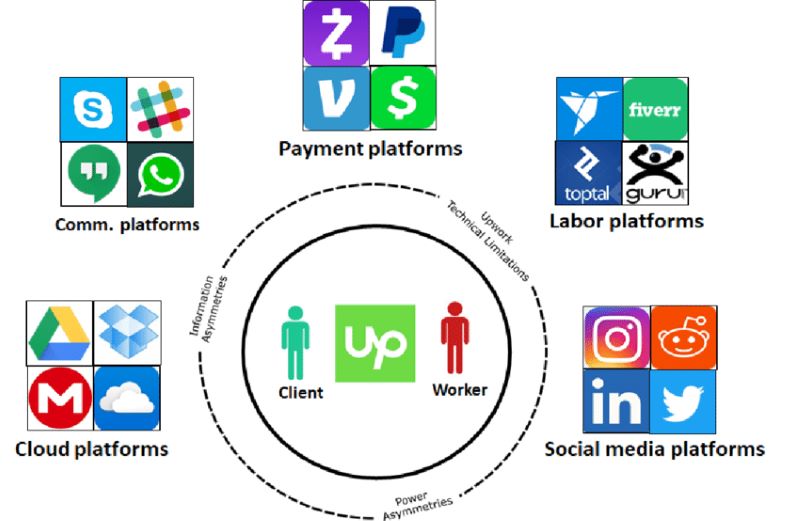Impact of Digital Economy Platforms: Boon or Bane for Job Seekers?
The digital wave has turned the job market upside down. Impact of digital economy platforms on employment – who isn’t talking about it? Some call it a goldmine for freelancers. Others, a tricky maze with no way out. But how does it really swing for you, the job hunter? It’s time to dive deep and see what sticks. We’ll unpack the gig economy, dissect tech platforms’ push and pull on jobs, vibe with the digital nomads, and slice through the hype around automation. Get ready to find out if this digital dance floor helps you groove to a new career beat or ties your employment laces together.
Unpacking the Gig Economy: Opportunities and Challenges
Rise of Gig Economy Jobs
Gig economy jobs are taking over. More people pick gigs for flexibility and freedom. These gigs, or short-term jobs, come from tech platforms like Uber or Upwork. They hook up freelancers with quick work. It’s a major shift in how people make money.
Let’s dive into how this works. In the past, people often had one job with set hours. But now, things have changed. Tech has created a labor market where you can choose when and where you work. It gives control back to the worker. You make your schedule. But it’s not all easy-going.
There are challenges with gig work. Sometimes it’s hard to know how much money you’ll make. This can make planning tough. Also, there’s less job security. If the platform you work through slows down, you may find yourself out of gigs.
Still, the growth of digital employment trends is clear. People are drawn to online freelance work. They want to try out different jobs without being tied down. It’s becoming more common to build a career out of these digital marketplace gigs.
What’s cooler than choosing your work based on what you like? You connect to jobs worldwide from your laptop. The tech platforms labor market is growing fast. People everywhere are jumping on board.
Yet, with all this growth, questions pop up. What about workers’ rights? If you’re a gig worker, are you getting the same protection as full-timers? This is a hot topic. Groups are pushing for platform-based employment to offer benefits like insurance.
Navigating Online Freelance Work Dynamics
The world of online freelance work can be complex. Here’s the lowdown. You sign up on a platform and list your skills. Then, you hunt for gigs that match your talent. Easy right? But there’s more to it.
You’ve got to stand out in the crowd. That means showing off your best work. Also, you should always keep learning. Upskilling gives you an edge. It means learning new stuff to stay ahead in the game.
Another thing is knowing the deal. What’s in the contract when you take a gig? It’s important to understand the terms. This way, you avoid surprises about payments or job expectations.
Digital nomads are a part of this gig world too. They work remotely while traveling. They live the dream, combining work with exploring new places. But they also need to stay in the loop about changes in digital jobs.
Finding work on these platforms can be great. It can also have its ups and downs. You’ve got to be ready for anything. Being flexible and adaptable is key. If you get this right, you can ride the wave of the gig economy’s rise.
So, what’s the final word? Gig jobs are booming thanks to tech platforms. They offer a new world of work with amazing possibilities. But remember, for all the freedom, there’s still a need for security and benefits. That’s something the digital workforce is aiming for. And that is how you balance the opportunities and challenges in the gig economy.
Tech Platforms and Their Labor Market Influence
Shifting Employment Patterns Due to Technology
Tech is changing job hunts big time. Gone are the days of looking in papers for job posts. Now, tech platforms rule the job market. They make finding work simpler and faster. But not all that glitters is gold. These same platforms mix things up in ways we didn’t expect.
Let’s dive in. Digital employment trends are on the rise. And fast. Why? Because more folks crave the freedom that online freelance work offers. They want to pick where and when they work. This means more gig economy jobs are popping up. We’re talking Uber driving, food delivery, and web design.
But here’s a twist. These shifts also bring new, often tricky employment patterns. People are now their own bosses, so income can be like a rollercoaster. It’s up one day and down the next. This makes it hard to plan for things like a home or even a vacation. It’s hard to feel secure when your paycheck shifts like sand.
Platform Workers’ Benefits and Security
Speaking of secure, let’s talk about platform workers’ benefits. Or the lack thereof. Working through tech platforms can sometimes feel like walking a tightrope without a net. One wrong step and you’re in trouble. Why? Many gig workers miss out on the perks that come with old-school jobs. Think health insurance or a 401(k). But guess what? Some platforms are catching on.
They’re starting to offer benefits to keep their freelancers around. Take a look at this model by Uber. They get what workers need. Yet, lots of platform-based employees still work without this safety net. We need to fix that. Without benefits, any misstep, like getting sick, can lead to a big fall.
Then there’s the question: can gig workers form unions? This is tough. But it’s key for job safety and fair pay. Still, it’s rare. Union talks are often stopped before they even start. Because platform workers are seen as “independent,” which means unions are tricky to form.
So, what’s the bottom line? Working online gives you freedom, sure. But it comes with costs. Costs that can make life hard to navigate. Platform gig workers must think ahead. They should prepare for dry spells and look out for benefits where they can find them. They must stand up for their rights, alone or together, to ensure their jobs are safe.
Now, don’t get me wrong. Tech platforms have stirred up job creation in ways we couldn’t imagine. They’ve opened doors for many to earn cash like never before. But we can’t ignore the challenges they bring. We have to work smarter and demand better. Together, we can make these digital platforms work for us, not just the other way around. It’s a balance, but I believe we can find it.
Remote Work and Digital Nomads: The New Norm
Exploring Remote Work Opportunities
Remote work is a big deal now. More people work from home or far-off lands. This change is huge. Thanks to the internet and technology, you can work from anywhere. You need just a laptop and a good connection. This is great for folks seeking freedom and flexibility.
In remote work, jobs are many. You can write, design, code, teach, and more. Companies now see the perks of hiring remote workers. They save on office space and find talent worldwide. Workers love skipping the daily commute. They save time and work in pajamas if they want.
Remote jobs can be found on lots of websites. They list gigs from companies big and tiny. Such sites help you land work that suits your skills and life. Now, let’s see how digital nomads live and work.
Employment Trends Among Digital Nomads
Digital nomads travel and work at the same time. It sounds like a dream, right? They use tech platforms to find gigs in different spots. They’re writers, marketers, or tech pros. Many are young, but some are older and seasoned. They all seek a life of adventure and work.
Being a nomad is not all fun and games though. It needs planning and a steady stream of gigs. They have to handle time zones and find places to work from. Coffee shops and coworking spaces are popular choices. They hop from one place to another, chasing the sun or new scenes.
Nomads change jobs often. They take short gigs or project-based work. They live by their own rules, balancing work with seeing the world. This way of life is growing fast. More folks are choosing freedom over an office job. They pack up their life and hit the road with their laptop.
These trends show a big shift. Work isn’t just in an office from nine to five anymore. Work and life are blending together. People crave control over how and where they work. They want to explore and not be stuck in one spot. Remote work and nomads are reshaping our work culture. It’s the new norm. And it seems like it’s here to stay.
The Double-Edged Sword of Automation and Job Creation
Balancing Automation and Job Displacement
Walk into a factory today, and you may see robots doing jobs once done by people. This is automation. It’s a big word, but it simply means using tech to do tasks. Why does it matter for jobs? Because it changes them. A lot. How? The tough news first: some jobs disappear.
Machines can work all day without breaks and don’t need paychecks. So, companies often choose machines for certain tasks. But it’s not all gloomy. Automation also makes new jobs—jobs we didn’t even think about years ago! Think of someone flying a drone to check power lines. Cool, right? That’s a new job made possible by tech.
Yet, we can’t ignore the people who find it tough to get work after their jobs are replaced. That’s the scary part. Many ask, “Will a robot take my job?” The answer isn’t simple. Yes, some jobs do get replaced, but not all. And while some folks struggle, others learn to work with machines. That’s where upskilling comes in. Upskilling means learning new skills to do new kinds of work. Tech companies should help people learn these new skills. Then people can work alongside robots, not lose out to them.
Digital Jobs and Their Economic Contribution
Now, let’s talk money and jobs in the digital world. Online work isn’t just a side thing; it’s a big deal for the economy. We’ve got folks selling crafts online, driving for ride-sharing apps, and freelancing their skills. This is the gig economy, and it’s growing fast! Because of the internet, people have more ways to make money. They can work from anywhere and choose their hours. This flexibility sounds great, and many love it.
But we must dive deeper. Not all that glitters is gold, as the saying goes. These digital jobs sometimes pay less and can be uncertain. One month you might earn a lot, the next, much less. Benefits like health insurance? Rarely in the deal. And what about job security? Well, that’s a tricky one. Working through an app means you’re a click away from losing your job. No warning, no goodbye handshakes—it’s that instant.
Yet, the growth of the digital workforce is massive. It’s creating ways to earn a living that never existed before. And that’s good news! It’s also sparking new ideas. Some say, “Let’s make unions for online platform workers.” That’s a way to protect them and give them a stronger voice.
So, where does all this leave us? In a spot where we need to balance. We need to look at tech with eyes wide open. It’s exciting and full of promise, but it’s not perfect. We need to watch out for those who might be left behind. And we should shout out for their rights. It’s about making sure the tech boom doesn’t turn into a bust for some workers. Let’s keep the conversation going and work to make the digital age good for everyone.
In this post, we dived deep into the gig economy, exploring the different ways it shapes our work today. We looked at how gig jobs have grown and the unique aspects of freelance life. Tech platforms are changing how we find work and are even shaking up job security and benefits. Then we saw how remote work is becoming more common, and why digital nomads love this shift. Finally, we balanced the good and bad of automation—how it takes some jobs but also creates new ones.
As an expert in the evolving work landscape, I see these changes as exciting but also with caution. Gig jobs offer freedom, and tech makes finding work easier. But we can’t ignore the need for job security. Remote work frees us from the office, which is great! We just need to keep creating jobs as fast as automation changes them. What’s clear is this: the way we work is transforming, and we must adapt to thrive. Let’s embrace the new with open arms, but always with a sharp eye on the future.
Q&A :
How are digital economy platforms changing the job market?
The advent of digital economy platforms, such as Uber, Airbnb, and Upwork, has significantly altered the landscape of employment. These platforms have introduced a gig economy where short-term contracts or freelance work have become more prevalent, thus shifting the traditional concept of a stable, long-term job. They’ve enabled on-demand services, which has created new job opportunities but also disrupted existing industries, leading to a dynamic shift in the skill sets required and job availability across various sectors.
What are the benefits and challenges of working for digital economy platforms?
Working for digital economy platforms offers several benefits, including flexible working hours, the ability to choose freelance projects or tasks based on personal preference, and often the opportunity to work remotely. However, such platforms also pose challenges, such as the lack of job security, limited worker rights, and benefits associated with traditional employment, as well as income unpredictability. Navigating a balance between the advantages of flexibility and the need for stability is a central challenge for workers in the digital platform economy.
Can digital economy platforms contribute to job creation?
Yes, digital economy platforms have the potential to create jobs by enabling new forms of entrepreneurship and allowing individuals to monetize assets or skills in ways that weren’t previously possible. For instance, someone with a car can become a driver for a ride-sharing service, or a homeowner can rent out space through a lodging platform. However, while these platforms can certainly lead to job creation, the nature of those jobs and their economic implications vary widely, and they may also replace or disrupt existing jobs.
How do digital economy platforms affect traditional employment?
Digital economy platforms can both complement and compete with traditional employment. They provide a supplemental income for some workers but may also lead to less demand for traditional jobs as more consumers use platform-based services. Additionally, these platforms are redefining what it means to work by promoting independent contracting over salaried positions, which can undermine long-standing labor laws and protections designed around conventional employment models.
What measures are being taken to protect workers on digital economy platforms?
In response to the growing concerns over worker rights on digital economy platforms, there have been various measures proposed and enacted worldwide. These include efforts to ensure a living wage, providing access to benefits traditionally reserved for full-time employees, such as health insurance and retirement plans, and detailing clearer tax obligations. Additionally, some regions are looking into legislation that would classify platform workers as employees rather than contractors, extending further protections and benefits to them.






